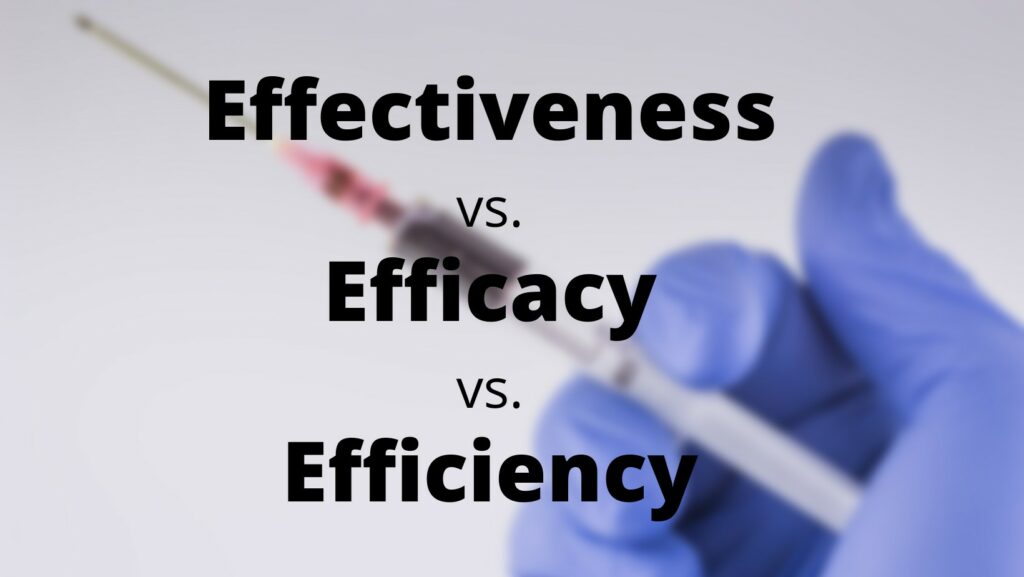Effectiveness, efficacy, and efficiency seem like they’re used interchangeably all the time, but in the healthcare industry, they mean very different things. With the COVID-19 pandemic, we’ve also heard efficacy and effectiveness more often, especially in terms of vaccines.
Efficacy
Generally speaking, efficacy is used in scientific environments. Efficacy can be defined as the ability to generate the desired result, regardless of if it’s under specific conditions.
For example, a medication might need to be monitored and prescribed at a specific dosage to have the desired result. If proven to help treat the patient and their symptoms, then the medication has proved its efficacy.
Effectiveness
Staying with the medication example, yes, it may achieve the goal of relieving symptoms, but is it improving the symptoms it was expected to? This is how effectiveness is defined.
In the healthcare industry, clinical rials will also test effectiveness, which entail testing treatments in real-world settings outside of controlled conditions. Effectiveness needs to be proven in this manner to ensure it’s safe for the general public in everyday life.
Efficiency
Efficiency is the ratio of putting in work to the total outcome. The key to efficiency is doing things right but in the most economical way. This could be based on time, money, or other factors.
Clinical trials can prove that two treatments are equally effective. But one can be more time-consuming or cost more money, which can determine which option is more efficient.
Effectiveness, efficacy, and efficiency all play a large role in the healthcare industry, especially in clinical trials. Not only do they help solve problems surrounding the medical field, but they can help create new medications and treatments. Together, they work to provide the best option at the lowest cost.



